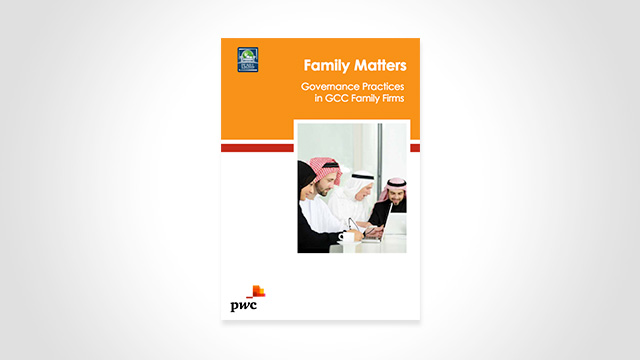
Keeping it in the family
This week marks the launch of our latest research report “Family Matters, Governance Practices in GCC Family Firms” – a piece of research jointly conducted by ourselves and PwC.
Over the course of three months, we interviewed over 100 family firms across the GCC in order to analyse governance practices in a sector that is estimated to contribute some 80% of the region’s non-oil GDP.
A key point for us at the Pearl Initiative is the increasing importance being placed on corporate governance, although there is still work to be done on making it a high strategic priority, in part due to the challenges of implementing changes that may affect the family as well as the corporate dynamics.
Board composition remains a significant issue with regards to providing the right type of interlocutor between the corporate entity and the familial stakeholders. What is interesting is that over half of those companies surveyed have non-family representation on their Boards, the value they bring cited as strategic, corporate governance, legal and finance skills. The additional disciplinary benefits include not having major decisions being made without Board approval or feedback.
Transparency remains an issue to be considered as, although three quarters of family firms produce an annual report equivalent, they are genuinely distributed among internal stakeholders only and two thirds only disclose financial information to banks and business partners. Only 12% of those in the survey publicly disclose any kind of financial information whatsoever.
You can access the full research report by clicking View Document(below) but a key conclusion is that, although GCC family firms are some of the largest and most successful in the world today, there is a need to implement higher standards of corporate governance. The key drivers to improve both corporate and family governance are often linked to the desire to develop and eventually pass on a healthy and efficient organization to the next generation.
